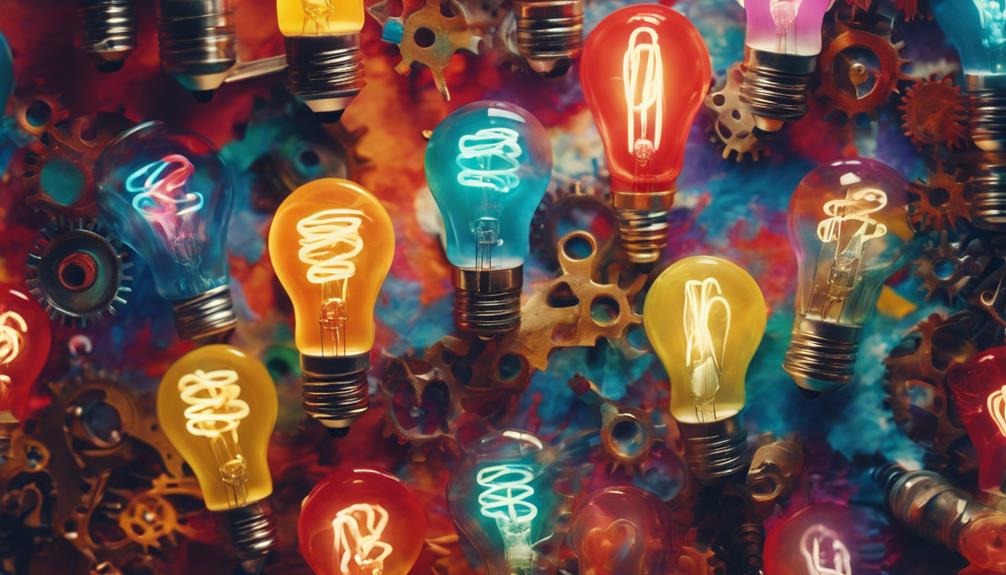Critical thinkers reveal their potential through a blend of skills and attributes. They excel in observation and analysis, breaking down complex information to form insightful conclusions. Curiosity drives their exploration, while emotional intelligence helps them navigate biases and understand diverse perspectives. Their problem-solving approach is structured and evidence-based, fostering creativity and innovation in decision-making. By maintaining skepticism and open-mindedness, they challenge assumptions and embrace new ideas. These strategies not only enhance personal growth but also improve collaboration with others. Discovering more about these elements can offer greater insights into the art of critical thinking.
Key Takeaways
- Critical thinkers rely on observation and analytical skills to dissect complex information and recognize underlying assumptions.
- Curiosity drives critical thinkers to seek continuous knowledge and challenge existing beliefs through diverse sources.
- Objectivity helps them evaluate evidence without personal bias, leading to more accurate conclusions and informed decisions.
- Emotional intelligence allows critical thinkers to understand their feelings and those of others, enhancing their problem-solving abilities.
Observation and Analytical Skills
Observation and analytical skills are essential for critical thinkers, enabling them to perceive their surroundings and break down complex information effectively.
These skills involve meticulously documenting details and gathering data through their senses. By evaluating how different parts of information interact, critical thinkers can recognize underlying assumptions in reasoning.
They utilize evidence to support their conclusions, which enhances their awareness of nuances in various situations. This ability to dissect information not only aids in understanding diverse perspectives but also fosters informed decision-making.
Ultimately, observation and analytical skills form the backbone of critical thinking, allowing individuals to navigate complexities and derive meaningful insights from the world around them.
Curiosity and Lifelong Learning

Curiosity drives critical thinkers to explore new ideas and continuously seek knowledge, fostering a mindset of lifelong learning. This intrinsic trait not only fuels their passion for discovery but also encourages them to challenge assumptions and broaden their horizons.
Critical thinkers often engage with diverse sources of information, enhancing their understanding of the world. Key aspects of curiosity and lifelong learning include:
- Developing a habit of asking questions.
- Embracing new experiences and perspectives.
- Seeking out educational opportunities regularly.
- Connecting ideas across different fields of knowledge.
Objectivity and Bias Awareness

Understanding the role of objectivity and bias awareness is fundamental for critical thinkers as they navigate complex information and seek to evaluate evidence without personal influence.
They recognize that personal beliefs can cloud judgment, making it essential to challenge these biases. By being aware of their own perspectives, critical thinkers can assess information more clearly, identifying potential biases or manipulations in the data presented.
This awareness fosters a more accurate analysis of situations, allowing them to draw conclusions based on evidence rather than preconceived notions. Ultimately, objectivity enhances their ability to engage with diverse viewpoints, leading to more informed decisions and discussions.
In this way, critical thinkers cultivate a mindset that prioritizes clarity and rationality over personal sentiment.
Emotional Intelligence and Introspection

Emotional intelligence and introspection play essential roles in helping critical thinkers recognize their own biases and navigate complex emotional landscapes. These skills foster self-awareness, enabling individuals to understand their thoughts and feelings while considering others' perspectives.
By engaging in introspective practices, critical thinkers can enhance their emotional intelligence through:
- Recognizing personal emotions and motivations
- Understanding how feelings influence decision-making
- Practicing empathy towards others' experiences
- Challenging assumptions to promote deeper insights
These elements create a strong foundation for critical thinkers, allowing them to analyze situations more effectively and interact with others in a thoughtful, constructive manner.
Ultimately, this combination empowers them to approach challenges with clarity and compassion.
Problem-Solving and Decision-Making

Effective problem-solving and decision-making require a structured approach that enables critical thinkers to analyze issues and evaluate potential solutions efficiently.
These thinkers identify problems clearly, breaking them down into manageable components. They assess various options, considering potential consequences and outcomes before making informed choices.
By employing logical reasoning and evidence-based analysis, they minimize biases and emotional influences that could cloud judgment. Additionally, critical thinkers remain flexible, adapting their strategies as new information emerges.
Their commitment to continuous learning allows them to refine their problem-solving skills over time. Through this disciplined process, they enhance their ability to tackle challenges effectively and make decisions that align with their goals and values.
Empathy and Compassion

Empathy and compassion play essential roles in critical thinking, as they enable individuals to connect with others while analyzing complex situations. These qualities help critical thinkers balance emotional understanding with factual analysis, fostering better decision-making.
Key aspects include:
- Recognizing the human element in discussions.
- Valuing the well-being of others during problem-solving.
- Enhancing collaboration and communication among peers.
- Encouraging open dialogue to understand diverse perspectives.
Creativity and Innovation

Creativity and innovation are essential components of critical thinking, as they empower individuals to explore unconventional solutions and challenge existing paradigms.
Critical thinkers recognize that standardized approaches often limit problem-solving. They embrace diverse interests and perspectives, allowing for unique ideas to flourish. This willingness to experiment fosters an environment where innovative concepts can emerge.
Additionally, creative thinkers aren't afraid to take risks; they understand that failures can provide valuable lessons and insights. By integrating creativity into their decision-making processes, critical thinkers enhance their ability to adapt to changing circumstances and find effective solutions.
Ultimately, this blend of creativity and critical thinking drives progress and encourages a culture of continuous improvement.
Open-Mindedness and Skepticism

Open-mindedness and skepticism are essential traits that empower individuals to evaluate ideas critically while remaining receptive to new perspectives.
These qualities encourage a balanced approach to understanding the world, fostering deeper insights and more effective problem-solving.
Critical thinkers who embody open-mindedness and skepticism can:
- Challenge their own assumptions and biases.
- Seek diverse viewpoints to enhance understanding.
- Question established norms and practices.
- Rely on evidence before forming conclusions.
Conclusion
To summarize, while some might argue that critical thinking is an innate talent, it's clear that anyone can cultivate these essential skills.
By embracing observation, curiosity, and open-mindedness, individuals can enhance their ability to analyze information and make informed decisions.
This journey of growth not only sharpens one's intellect but also fosters empathy and creativity.
Ultimately, anyone willing to invest in their critical thinking can navigate complexities with confidence and contribute positively to their communities.









